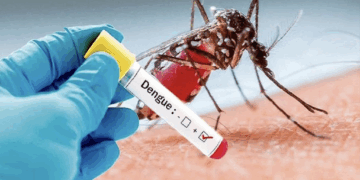Perimenopause which means “around menopause” is the time when your body’s hormone production starts to decline, and you begin the transition into menopause. According to the Medical director and a board-certified ob-gyn and medical adviser for Stripes, Lizellen La Folette, Perimenopause marks the beginning of a continuum of irregularity and unpredictability with each cycle.
The process, according to her, is gradual, and each month brings a full state of flux. Depending on your ovaries and follicles—technically termed your ovarian reserve—perimenopause can begin in your 30s or earlier.
During perimenopause, estrogen and testosterone levels start to decline in an inconsistent manner, thereby causing a wide range of menopause-like symptoms,” says Somi Javaid, MD, a fellow of the American Congress of Obstetricians and Gynecologists and founder and chief medical officer of HerMD. In the fallout, irregular menstrual cycles, hot flashes, night sweats, mood changes, and impacts on your sex life are all common. Symptoms may appear gradually over time, although some women can remain completely asymptomatic, she explains.
Some Premenopause Symptoms?
They include;
Hot flashes and night sweats. Women can experience more night sweats and hot flashes during perimenopause than in menopause,” says Dr. La Folette, mood swing, weight gain, breast changes, irregular periods, bladder changes, including the frequent urge to urinate and incontinence, trouble sleeping, fatigue, hair thinning or hair loss, vaginal dryness and pain during sex to mention but a few symptoms.
When you start experiencing any of these symptoms, it’s time to start a conversation with your doctor. The conversation with your doctor should be twofold, says Dr. La Folette. Since your risk of cardiovascular disease also increases during this time, “first, establish a baseline understanding of your cardiovascular health by knowing your numbers: blood pressure, blood glucose, and cholesterol,” she says. “Then track and discuss changes in your moods and cycles.
Treatments For Perimenopause Symptoms?
Since premenopause and full-blown menopause symptoms are largely the same, perimenopause is often treated with standard menopause treatments. “This starts with a doctor-patient conversation where we discuss the benefits and risks of hormone replacement therapy (HRT), and then the woman gets to decide,” says Dr. La Folette.
For years hormone therapy has been controversial, thanks to a 2002 study that linked the use of estrogen therapy to an increased risk of breast cancer. Subsequent research has exposed flaws in the original study’s design and found that the benefits of hormone replacement therapy far outweigh the risks. “Hormone therapy is the most effective treatment for perimenopausal symptoms,” says Leah Millheiser, MD, an ob-gyn, North American Menopause Society–certified menopause practitioner and the chief medical officer of Evernow.
During perimenopause, this could come in the form of a low-dose birth control pill to help even out fluctuating hormone levels, or as a combination of estrogen and progesterone therapy. (Keep in mind, you can still get pregnant in perimenopause.)
Aside from standard menopause treatments, lifestyle changes make a big difference in treating premenopause symptoms. “I recommend maintaining a healthy weight, exercising regularly, and getting plenty of sleep,” says Dr. La Folette. “And watch your alcohol intake, as drinking can exacerbate sleep problems.
Culled from glamour.com





